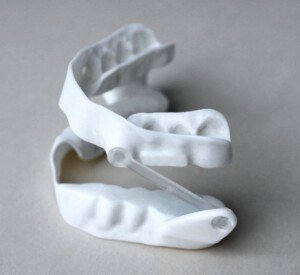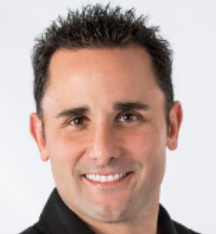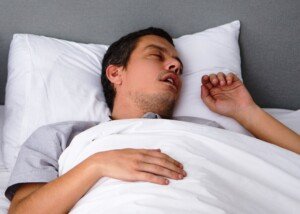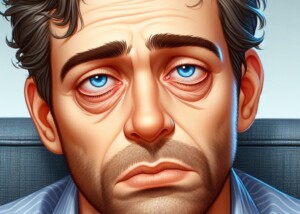
Oral appliances for sleep apnea, namely the mandibular advancement device, can make a pre-existing TMJ problem worse.
This is ironic, because in some cases of obstructive sleep apnea, TMJ disorder is the cause.
“Even the treatment of sleep apnea can aggravate a TMJ disorder,” says Jeffrey Haddad, DDS, of Doolin Haddad Advanced Dentistry in Rochester, MI.
“I strongly recommend against self-treatment for sleep apnea because one-size-fits-most sleep apnea appliances can hurt, not heal,” says Dr. Haddad.
Do not trust a template oral appliance, even though these are sold online and marketed as “cures” for sleep apnea or snoring.
The elimination of snoring, by the way, does not mean the elimination of sleep apnea.
There are people with untreated obstructive sleep apnea who don’t snore. This is called silent sleep apnea.
A dentist must fashion a unique oral appliance based on your unique oral anatomy, which is why the oral devices sold online are not a solution to sleep disordered breathing.
Custom Tailored Mandibular Therapy
“With all of the latest data, I feel the proper approach to treating TMJ disorders and obstructive sleep apnea is with the use of precise muscle measuring and monitored therapy, not simply an oral appliance,” continues Dr. Haddad.
“The incorrect appliance can force patients into a headache/jaw pain spiral.
“I have unfortunately treated patients in my practice who have been adversely affected by the use of over-the-counter, Internet ordered or poorly made sleep appliances.
“When we made new, precisely measured sleep appliances based on their personal muscle physiology and monitored the outcome, their pain symptoms were relieved and their sleep issues improved with greater predictability.”
Symptoms that Are Suspicious for Sleep Apnea
- Several bathroom trips overnight to urinate.
- Waking up gasping for air.
- Excessive daytime drowsiness despite eight hours of sleep.
- Difficulty concentrating and focusing on tasks; irritability.










































